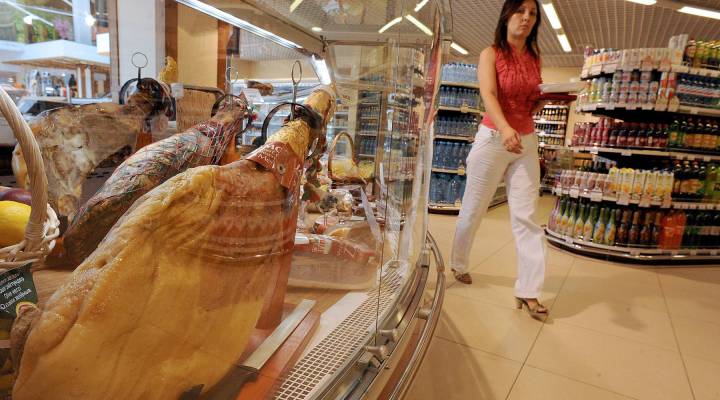
Russia swore off our chicken legs. But not to worry.

Russia is hitting back against U.S. and European economic sanctions with some of its own.
Russian Prime Minister Dmitry Medvedev said today that Russia will ban the import of food and agricultural products – including pig meat, cow meat, chicken meat, fruit, vegetables and dairy products – from the U.S., EU, Canada, Norway and Australia.
This is not the first Russian ban on U.S. foods. Last February, Russia closed its door to American beef and pork, citing a zero-tolerance policy to additives that are fed to U.S. cattle and hogs. U.S. beef exports didn’t suffer significantly.
“Even with Russia out of the picture, our beef exports set a record last year of more than $6 billion,” said Joe Schuele, communications director with the U.S. Meat Export Federation.
Beef exports to Russia may have halted, but the American poultry industry exported $129 million worth of chicken, mostly chicken legs, to Russia in the first half of this year. Still, Russia is only about 7 percent of the U.S. export market, down from as much as 40 percent in recent years.
“If this would have happened 10 years ago, it would have been catastrophic,” said Jim Sumner, president of the USA Poultry and Egg Export Council. “But fortunately our industry is far less dependent on Russia as one of our key markets.”
In 2013, the U.S. exported a little over $1 billion worth of foodstuffs to Russia, while the EU exported $16 billion. However, some Russia watchers think it may be Russians who bear the brunt of the ban.
“At a minimum, Russian consumers are going to see a large number of products disappear, and in replacing them they’re likely to see an increase in food prices,” said Steven Pifer, a senior fellow at the Brookings Institution.
There’s a lot happening in the world. Through it all, Marketplace is here for you.
You rely on Marketplace to break down the world’s events and tell you how it affects you in a fact-based, approachable way. We rely on your financial support to keep making that possible.
Your donation today powers the independent journalism that you rely on. For just $5/month, you can help sustain Marketplace so we can keep reporting on the things that matter to you.












